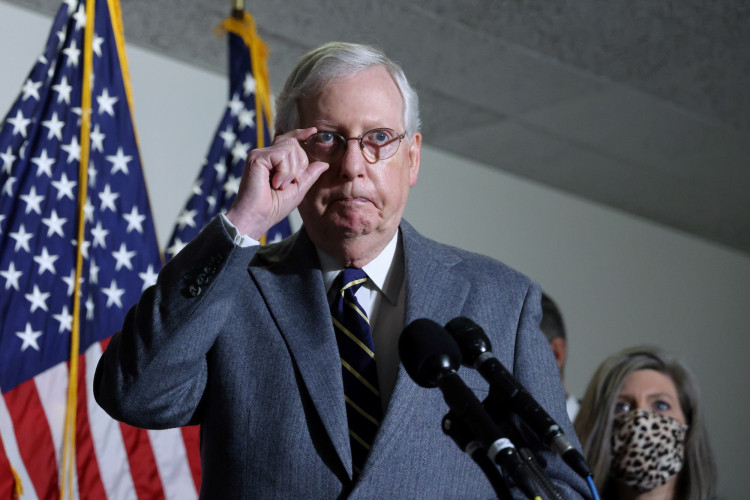Senate Minority Leader Mitch McConnell, a central figure in American politics and the longest-serving Senate leader in history, announced on the Senate floor Wednesday that he will step down from his leadership position after the November elections, hinting at a possible retirement at the end of his current term in 2027. At 82, McConnell expressed a desire to pass the baton to "the next generation of American leadership," reflecting on his unexpected journey from being a relatively unknown senator to becoming a pivotal force in the Senate and the Republican Party.
McConnell's tenure as leader has been marked by significant achievements, including the confirmation of three Supreme Court justices during Donald Trump's presidency, which solidified a conservative majority on the bench. However, his relationship with Trump has been complex, particularly after McConnell held Trump accountable for the January 6 Capitol riot but did not vote to convict him in the impeachment trial, citing constitutional concerns about convicting a former president.
The announcement comes at a time when the Republican Party is experiencing an ideological shift, moving from the traditional conservatism of Ronald Reagan, which McConnell has long championed, to a more populist approach associated with Trump. McConnell's decision to step down highlights the ongoing transformation within the party and sets the stage for a potentially contentious race to determine his successor.
McConnell's health has also been a topic of concern, with recent incidents raising questions about his capacity to continue in such a demanding role. Despite these challenges, McConnell assured his colleagues and critics that he still has "enough gas in the tank" to continue contributing to the Senate and the Republican agenda.
The race to succeed McConnell is already heating up, with several prominent Republicans, including the "three Johns" - Senators John Thune, John Cornyn, and John Barrasso - being closely watched as potential candidates. McConnell's departure will not only leave a significant leadership vacuum but also spark a broader conversation about the direction of the Republican Party and its strategy going forward.
As McConnell prepares to step back, his legacy as a strategic and often polarizing leader will be closely examined. His ability to navigate the complex waters of Senate politics and his commitment to the conservative cause have left an indelible mark on the American political landscape. However, his tenure has also been characterized by moments of contention, particularly in relation to Trump and the more populist elements within the party.
The announcement has elicited mixed reactions from colleagues and political observers, with many expressing respect for McConnell's contributions while also anticipating the potential for new leadership to bring about change within the GOP. As the November elections approach, the Republican Party faces not only the challenge of selecting a new leader but also the broader task of defining its identity and priorities in a rapidly changing political environment.
McConnell's decision to step down as leader, while continuing to serve in the Senate, underscores the delicate balance between personal considerations and the demands of public service. His reference to the recent loss in his family and the ensuing period of introspection highlights the human aspect of political leadership, often overshadowed by the rigors of governance and the heat of partisan debate.
As McConnell's tenure as Senate Minority Leader draws to a close, the focus will inevitably shift to his potential successors and the future direction of the Republican Party. The upcoming leadership race, set against the backdrop of a deeply divided America, will be a critical moment for the GOP as it grapples with its identity and seeks to chart a path forward in an increasingly complex and polarized political landscape.






